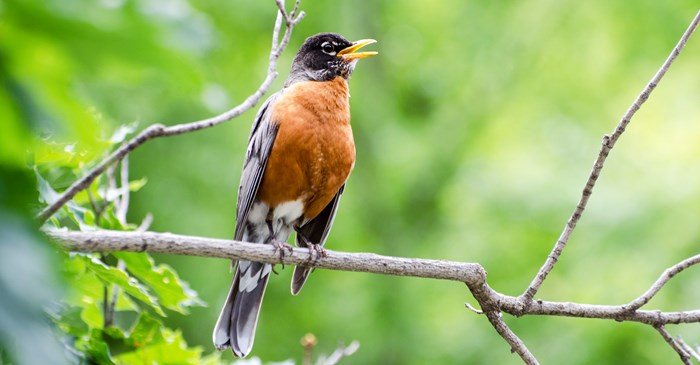You may have noticed that birds seem to sing like mad in the early part of the summer, trail off as August moves on, and then stop almost entirely by fall.
That’s true even when bird populations have increased in a given territory, though many species produce sounds beyond song on a year-round basis.
So what’s going on? Here are some reasons for that decrescendo of musical sound.
- Spring may be a more celebratory time. Some ornithologists theorize that birds sing earlier in the season to express joy in the brighter sunshine and warmer climate.
- The courting season is coming to a close. Mother Nature helps birds, especially males, find mates by giving them specific calls that signal their availability and ward off other suitors. The loudness, endurance, and complexity of a male’s song may be his way of showing females he’s capable of being a strong provider. In some species the males are the only ones to sing; in other cases, males and females sing back and forth to each other to reinforce their bond.
- Nesting season is done or nearly done. Birds continue to be vocal once they’ve established nests and started families. Males and females may communicate about finding food or otherwise raising their fledglings. In contrast, males may continue to broadcast loud and complicated songs to inform others their territory is already “taken.”
- The molting season has begun. In the late season, many birds turn their energies toward growing the new feathers that will help them withstand colder temperatures and/or fall migration. As they (temporarily) shed feathers that facilitate flying, they may be quieter so they can better escape predators.
- New food sources may be available. Some birds may move away from residential areas to better forage for late-season ripe grain, berries, and fruits.
Optimize your chances of hearing late-summer birdsong by offering up Lyric Bird Food’s Supreme Wild Bird Mix, which offers a high-nutrition mix of seeds, nuts, sunflower kernels, and cracked corn to attract a wide variety of songbirds.
